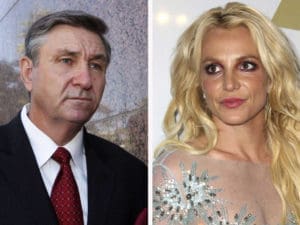
Following Britney Spears’ public divorce, custody battle and infamous public ‘2008 breakdown’, Ms Spears was involuntarily placed in psychiatric care and under conservatorship of her father James Spears by the Los Angeles Superior Court. For over 12 years, this conservatorship has restricted Ms Spears autonomy over both her personal and financial affairs.
In 2021, #FreeBritney trended, and the public rallied for Ms Spears as she made application to the Court to remove her father from the conservatorship, citing abuse of power and manipulation she has experienced under this arrangement. She succeeded with this application in August this year.
The public nature of this application may have you wondering, what is a conservatorship and how do they work in Australia?
Conservatorships?
Broadly speaking, a conservatorship is a court-ordered legal arrangement whereby an individual’s power to make personal and financial decisions is removed where it is determined they cannot do this for themselves, and someone else is appointed to make those decisions on their behalf.
The decisions the conservator is authorised to make are significant and far-reaching, extending to decisions such as where the person lives, collecting of income, determining employment, medical treatment and whether they can drive. In Ms Spears’ case, this power extended so far as forcing her to take certain birth control.
In America, the test for conservatorships is incredibly high, and it is generally unusual for someone to be placed under a conservatorship if they are not severely mentally impaired or elderly. The conservatorship must be the only way to protect that individual’s welfare.
Do Conservatorships exist in Australia?
In Australia, the law does not provide for ‘conservatorships’ in the same way as American jurisdictions. Rather, there are different guardianship and financial management laws which vary between states and territories. In NSW, most cases involve a decision made by Guardianship Tribunals, who appoint a financial manager (“administrators”) to take care of financial affairs, and personal guardians to make decisions around the health and lifestyle of individuals. Application to the Guardianship Tribunals can be made by a family member, but also by government employees and carers or medical professionals to form the opinion the individual does not have capacity to make decisions for themselves.
In Australia, guardianships are becoming more prevalent concerning individuals with dementia, where financial managers are appointed to prevent financial abuse, though it has been seen this has been a cause of financial abuse itself. However, the most common area of guardianships relates to the National Disability Insurance Scheme (NDIS). In ascertaining whether guardianship is required, the court will consider factors such as how capable the person is, their best interests, the family support they have access to, and what might occur if a guardian is not appointed.
How are these decisions reviewed?
Guardianship decisions are subject to review, having regard to the welfare and interests of the individual concerned, though it can be difficult to have financial managers and personal guardians removed.
The structure of appointment in NSW involves a process of “substituted decision-making”, given someone acts on behalf of the individual deemed incapable of making their own decisions. This is criticised by the United Nations and various Australian Disability Advocacy organisations, who advocate for a supported decision-making system based on the individuals’ “will and preferences”, engendering greater agency over their finances and personal lives.
Why #FreeBritney in Australia?
The #FreeBritney movement is a timely reminder for Australia that our guardianship laws have made little progress to abolish substituted decision-making regimes, which provide opportunities for abuse and neglect of vulnerable and individuals with disability. These issues are currently being explored by the Royal Commission into Violence, Abuse Neglect and Exploitation of People with Disability, which will likely result in significant changes to this area of the law.
Importantly, #FreeBritney is a reminder that coercive control, financial and psychological abuse can exist in many forms, and occur to people from ‘normal’ to ‘superstar’.
If you or someone you know is experiencing challenges with Guardianship Laws, or are experiencing financial or psychological abuse, our offices are available to assist you. Call us on (02) 8917 8700 to find out more.
